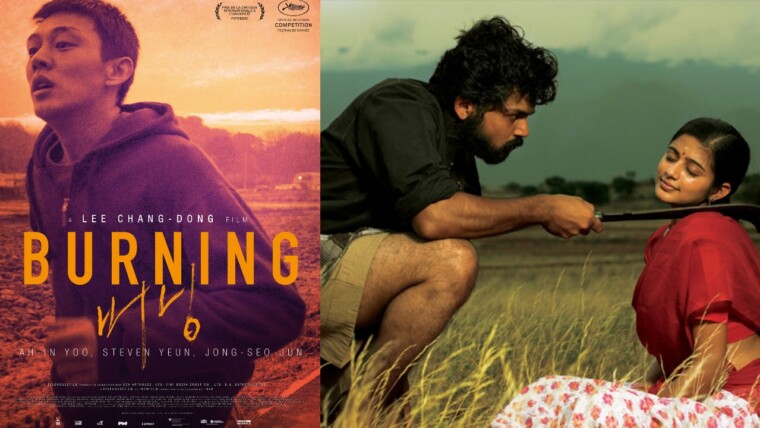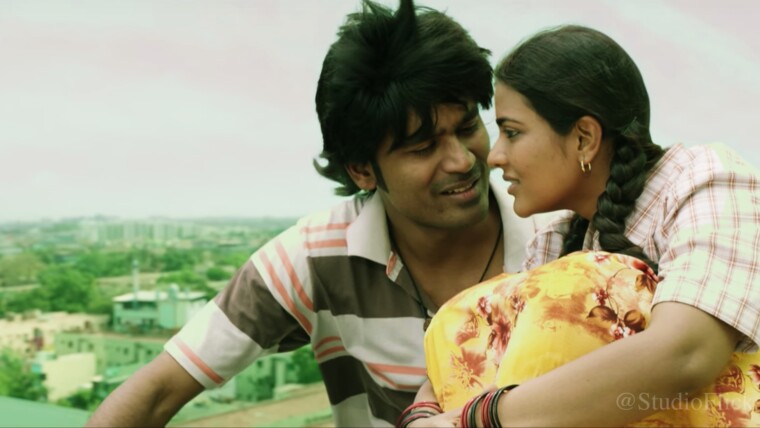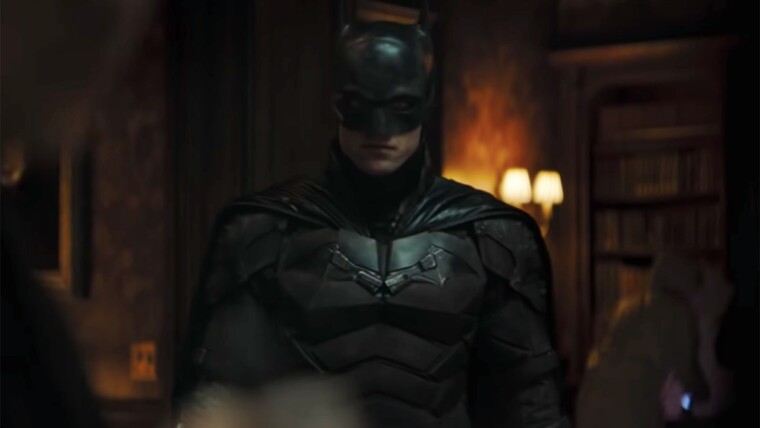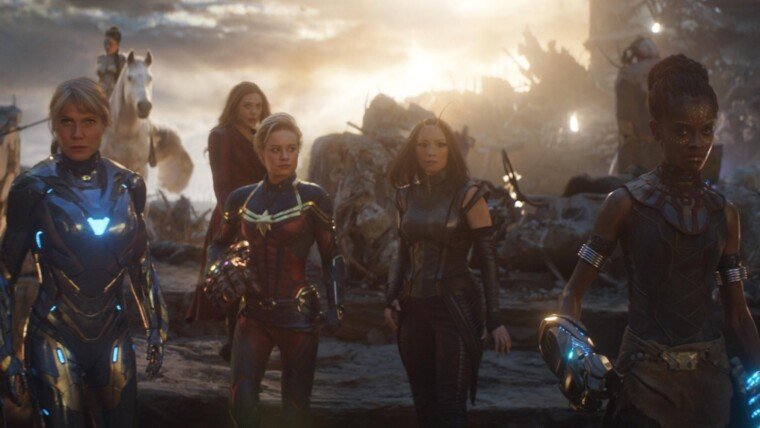Click here for our Vada Chennai review.
The following essay contains spoilers.
Since my first viewing of Kaala, I’ve embarked on my own little cultural journey through modern Indian cinema and media. From the empty halls of mid-afternoon screenings to casual Netflix sessions, I’ve noticed an interesting trend in Indian entertainment. That would be the disillusionment of modern institutions. If you’re a postmodern liberal forged in the bowels of MTV and Rick and Morty, that notion might seem banal to you. I felt similarly at first but there’s something so unapologetic and vivid about India’s cultural cynicism. Neither coming off as overtly satirical or acutely sentimental. Because unlike the deconstructions in shows like Black Mirror and South Park, there is a genuine struggle that feels palpable in shows like Ghoul, Sacred Games and Vada Chennai. A sense of continuity. The latter being the subject I wish to discuss. My experience with it, both unsettled and enthralled me.
Vada Chennai doesn’t feel like a resigned sigh in the face of institutional corruption. Rather, it comes off as a confident roar against it. Again, I cannot overstate this enough, I’m pretty much an Asian gringo when it comes to Indian cinema. We already have a perfectly competent review on it already. Nonetheless, I still believe I can offer a unique outsider perspective of how Vada Chennai is a powerful piece of celluloid, no matter the colour of your skin or tongue. So if you’re uninitiated in this particular foreign film genre, learn with me. If you are well-schooled in these arts, I implore you to bear with me. This is Vada Chennai through the eyes of a Malaysian Chinese guy. Oh and spoilers ahead from here on out.
From Loose Prisons To Local Politics
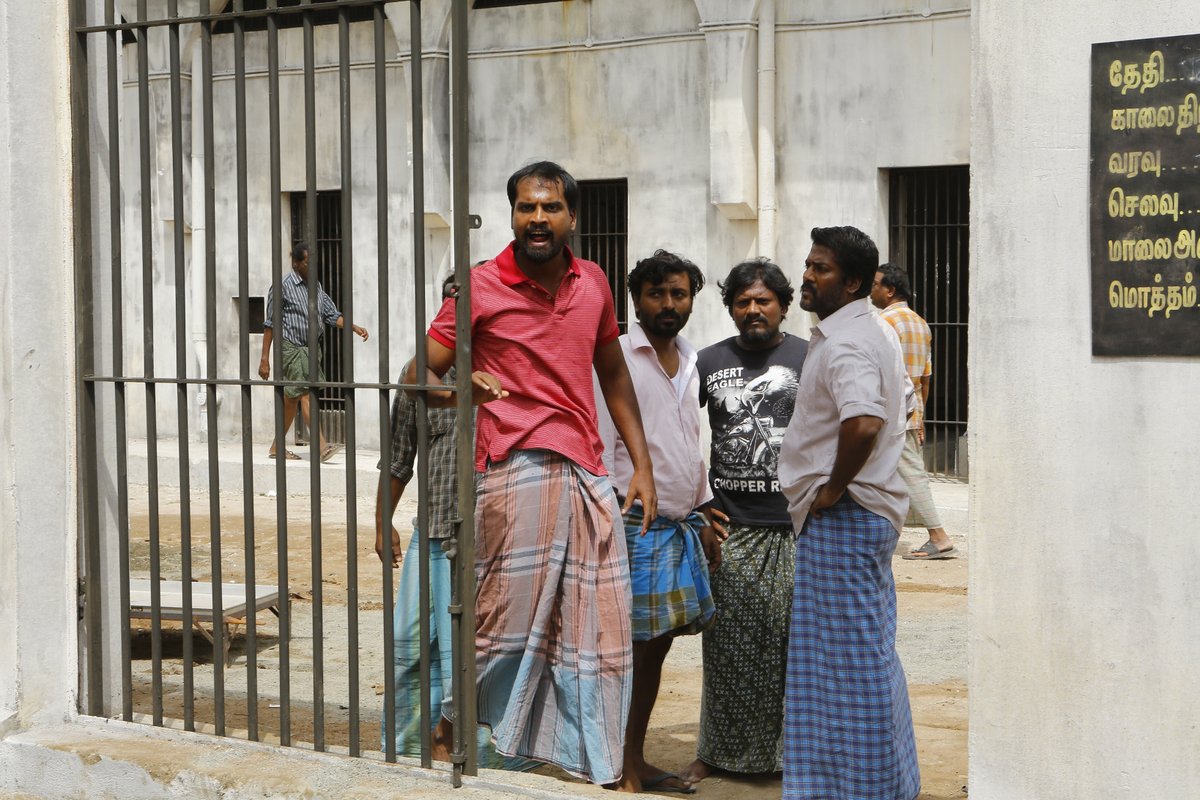 Growing up watching shows like Prison Break, The Rock and Shawshank Redemption, I always thought of prisons as places of paradox. Where criminals existed within the confines of strict laws and yet operated without it within quarantine. Still, most depictions of prison life I saw were still relatively structured and orderly. Not the ones in Vada Chennai though. In the films, they existed almost as sort of a community centre. There were no single or double bunk cells. Multiple prisoners would sleep right next to each other in bunk halls. The prison itself was understaffed and whole blocks belonged to gangs that could murder guards in cold blood.
Growing up watching shows like Prison Break, The Rock and Shawshank Redemption, I always thought of prisons as places of paradox. Where criminals existed within the confines of strict laws and yet operated without it within quarantine. Still, most depictions of prison life I saw were still relatively structured and orderly. Not the ones in Vada Chennai though. In the films, they existed almost as sort of a community centre. There were no single or double bunk cells. Multiple prisoners would sleep right next to each other in bunk halls. The prison itself was understaffed and whole blocks belonged to gangs that could murder guards in cold blood.
That scene when one of the gang leaders, Senthil threatened to have them murdered if they ever thought of raiding his block was quite an eye-opener. The dynamics of prison life in India are much more different than of western depictions. Films in the west often frame prison in a sort of grimy and gritty fashion, prison isn’t a cakewalk here but there’s a sort candidness to it. In the first few minutes of Vada Chennai, prisoners are literally forced to defecate their hidden contraband on the spot! At no point did I feel the film was glamorizing or exaggerating the prison experience. From the carom matches and Rajinikanth movie sessions to gang warfare and assassination attempts, all of them can coexist in this strange microcosm.
Throughout Vada Chennai’s world of Machiavellian crime politics and desperadoes, I found its intersection with local politics fascinating. Unlike the Italian mob we see in films like Goodfellas, crime bosses are actually depicted as pillars of the community! The original godfather of Chennai was Rajan, who is seen as hero outlaw and yet also a union leader! He fights on behalf of residents in the slums and shanty towns to prevent government projects from evicting them from their homes. Not in a half-ass diplomatic way mind you but in with all the “I’ll run you guys out of town” gusto he can muster. He even beats up cops and sends them off like old Western films used to. India is the new of the Cowboys now and it totally kicks ass!
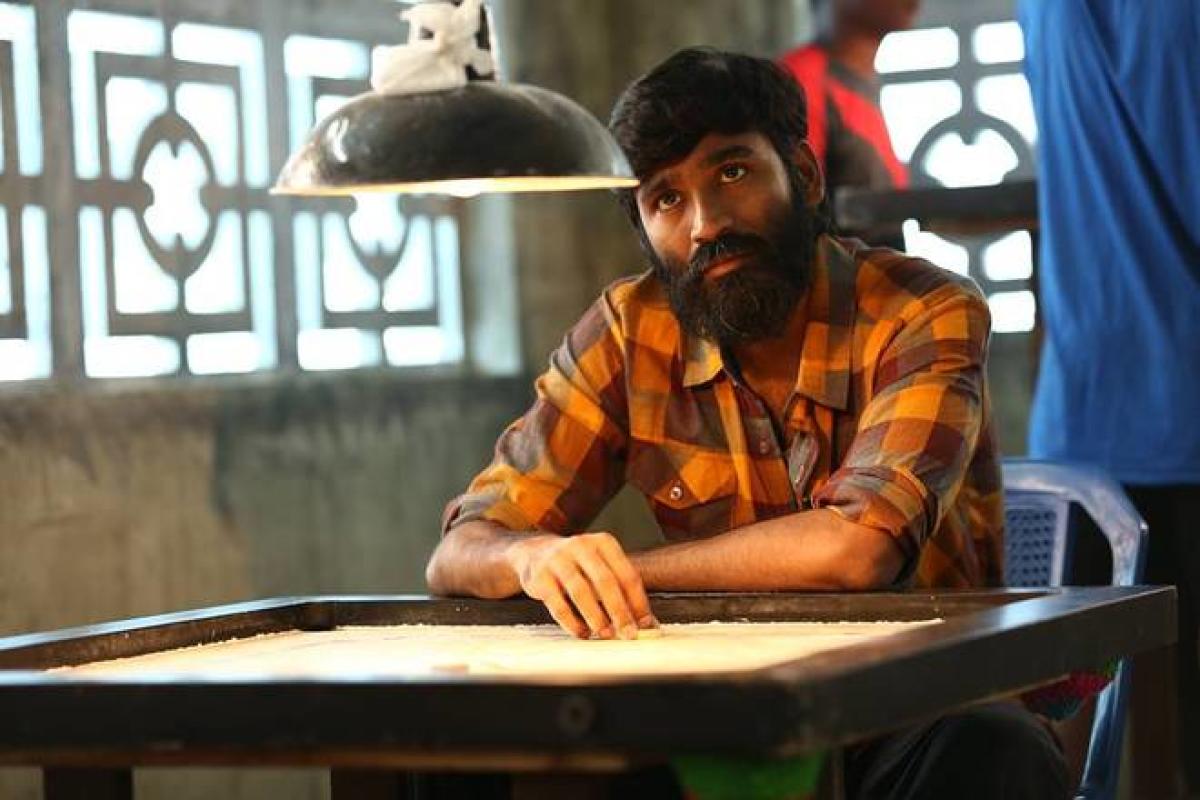
We later see in the film that how another character takes up Rajan’s place as protector of the people in Anbu. A talented carom player who starts off trying to make a name for himself while pursuing his local sweetheart, Padma. His life takes a turn for the worse though when he essentially kills a “made man”. To save his skin, Anbu pledges loyalty to crime boss Guna and to be his secret weapon against his rival Senthil. Eventually, he sees that he wishes to be on neither side and takes up Rajan’s place. None of it though would have been made possible without, the scheming Chandra.
Women In Power
 Growing up, I was often told by very opinionated Indian friends, mostly female, about how Bollywood and Indian media often had women in second-rate roles. They were either venerated but subjugated elders or damsels in distress. The female characters in Vada Chennai do not fit into any of these female archetypes. At the same time, the film avoided having its female leads embody hyper-masculine traits to overcompensate against those archetypes. Vada Chennai gives us female leads with plenty of agency without having to negate their womanly traits. Let’s take a look at Padma for example, Anbu’s love interest. Upon their first encounter, the film doesn’t try to paint her as some sort of uppity saint that is drawn to Anbu’s street charm. In fact, she tries to steal a sewing machine that Anbu looted from a nearby electronic shop.
Growing up, I was often told by very opinionated Indian friends, mostly female, about how Bollywood and Indian media often had women in second-rate roles. They were either venerated but subjugated elders or damsels in distress. The female characters in Vada Chennai do not fit into any of these female archetypes. At the same time, the film avoided having its female leads embody hyper-masculine traits to overcompensate against those archetypes. Vada Chennai gives us female leads with plenty of agency without having to negate their womanly traits. Let’s take a look at Padma for example, Anbu’s love interest. Upon their first encounter, the film doesn’t try to paint her as some sort of uppity saint that is drawn to Anbu’s street charm. In fact, she tries to steal a sewing machine that Anbu looted from a nearby electronic shop.
When confronted by Anbu, she stands her ground and he relents. Anbu, unable to return the stolen goods to the owner, takes a beating for it. In this instance, Padma feels terrible about the whole situation and agrees to go on a date with Anbu. I really appreciated the romance that blossomed between Padma and Anbu. It didn’t feel like the one-sided love stories I heard from my critical friends. It was two very flawed people, making mistakes and trying to make a way in this world together. I think it’s important to show in romantic relationships that both individuals are capable of making decisions, and therefore mistakes as well. It probably won’t be hailed as the most progressive relationship ever on cinema but definitely one of the more nuanced ones.
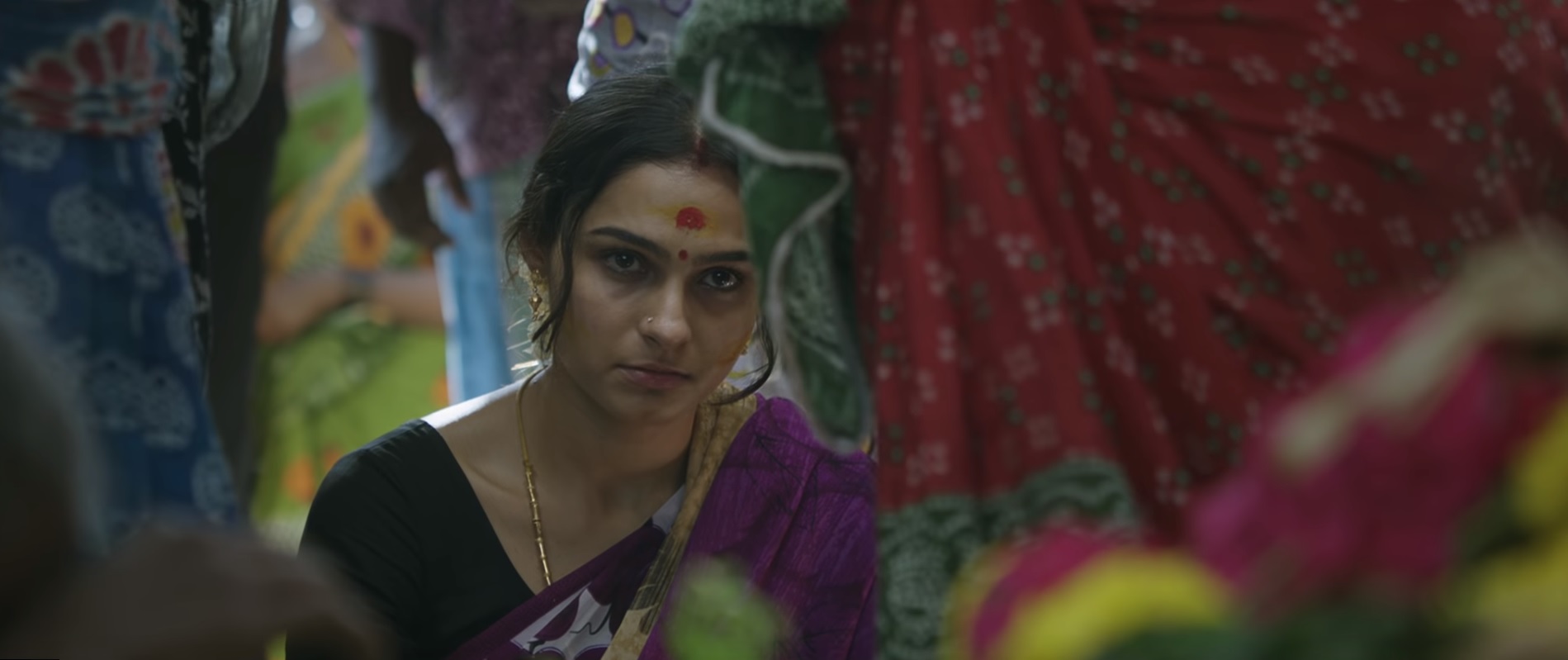
One of my favourite characters in Vada Chennai is Chandra, the former wife of Rajan. Her story is pure Shakespeare. After the murder of her lover at the hands of his lieutenants, she feigns ignorance and marries one of them, Guna. Knowing the precarious nature of her situation, she chooses to play the long game, turning them against each other. She also believes that Anbu is the one chosen to bring down the rival gangs from the inside. Petyr Baelish move over because this lady can do it all, from sleeping with the enemy to coordinating assassination attempts.
While the idea of a female power player isn’t a completely original notion with shows like Game of Thrones doing it bigger, Chandra’s motivation is captivating. Much like any other male protagonist seeking to avenge the death of his lover, Chandra does likewise. Instead of using brute force and strength, she uses her position to power and societal structures to be her weapon. So by the time, her husband’s murderers find out, it’ll be too late. Seriously, if you think Indian television and cinema is sexually regressive, check out Vada Chennai! They do it right!
Vada Chennai is one of the best films you can watch this year. It has narrative and thematic complexity, awesome action scenes and magnetic performances to go around. For me personally, Vada Chennai holds a special place. Like a white boy watching Crouching Tiger, Hidden Dragon for the first time, Vada was a culture shock to me in the best way possible. It challenged my presuppositions, expanded my understanding of foreign crime films and most importantly took me out of my comfortable Americanized media bubble. It’s films like these that remind me why I love cinema. May the sun never set over India’s growing entertainment empire!
Hey you! Yes you, hot stuff. Like my article? Leave a comment below and let me know what you think. Also, don’t forget to share it with your buds. And if you’d like to talk movies you can hit me up here: @cinesam


